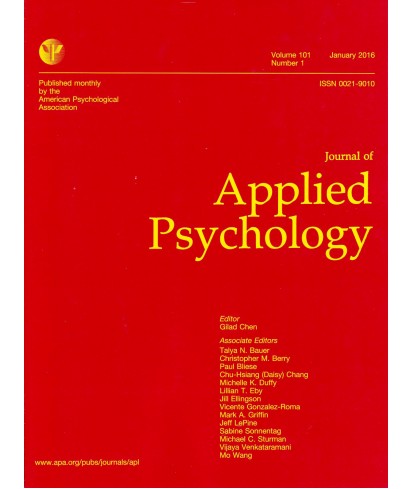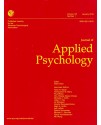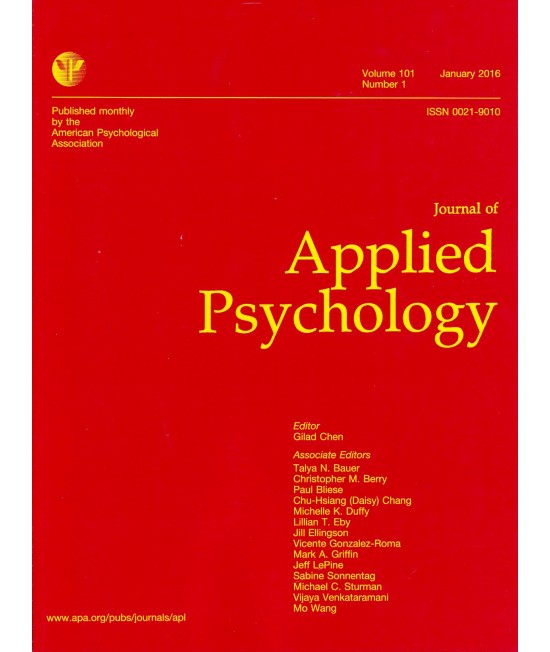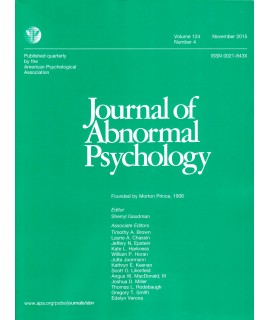Journal of Applied Psychology
INFO
- - Product Code: 6 issues per year
- - Availability: In Stock
 Call for Price
Call for Price
The Journal of Applied Psychology emphasizes the publication of original investigations that contribute new knowledge and understanding to fields of applied psychology (other than clinical and applied experimental or human factors, which are more appropriate for other American Psychological Association journals).
The journal primarily considers empirical and theoretical investigations that enhance understanding of cognitive, motivational, affective, and behavioral psychological phenomena.
Those psychological phenomena can be
- at one or multiple levels—individuals, groups, organizations, or cultures;
- in work settings such as business, education, training, health, service, government, or military institutions; and
- in the public or private sector, for-profit or nonprofit.
The journal publishes several types of articles:
- Theoretically driven and rigorously conducted empirical investigations that extend conceptual understanding (original investigations or meta-analyses);
- Theory development that synthesizes literature and creates new theory of psychological phenomena that will stimulate novel research (not extended literature reviews that do not advance theory);
- Descriptive research on applied psychological phenomena lacking basic knowledge in the literature that will provide a foundation for building new knowledge and theory (such studies should be directed at providing novel data on important and unknown phenomena, e.g., time frames for team development or socialization; dynamics of affect, performance, or other behaviors; discovery and documentation of new, important, and meaningful phenomena); and
- Rigorously conducted qualitative research on phenomena that are difficult to capture with quantitative methods.
The journal accepts work that is conducted in the field or in the laboratory, where the data (quantitative or qualitative) are analyzed with elegant or simple statistics, so long as the data or theoretical synthesis advances understanding of psychological phenomena and human behavior that have practical implications.
A nonexhaustive sampling of topics appropriate for the Journal of Applied Psychology includes
- individual differences in abilities, personality, and other characteristics;
- testing and personnel selection;
- performance measurement and management;
- training, learning, and skill acquisition;
- work motivation;
- job attitudes, affect, and emotions;
- leadership;
- team development, processes, and effectiveness;
- career development;
- work–family interface;
- work stress, health, and well-being;
- positive and negative work behaviors;
- diversity and cross-cultural differences in work behavior and attitudes;
- technology and work systems;
- expertise and knowledge management;
- creativity, innovation, and adaptation;
- and organizational design, change, and interventions.
The journal also encourages studies of human behavior in novel situations. Specific topics of interest, however, change as organizations evolve and societal views of work change.









FACEBOOK